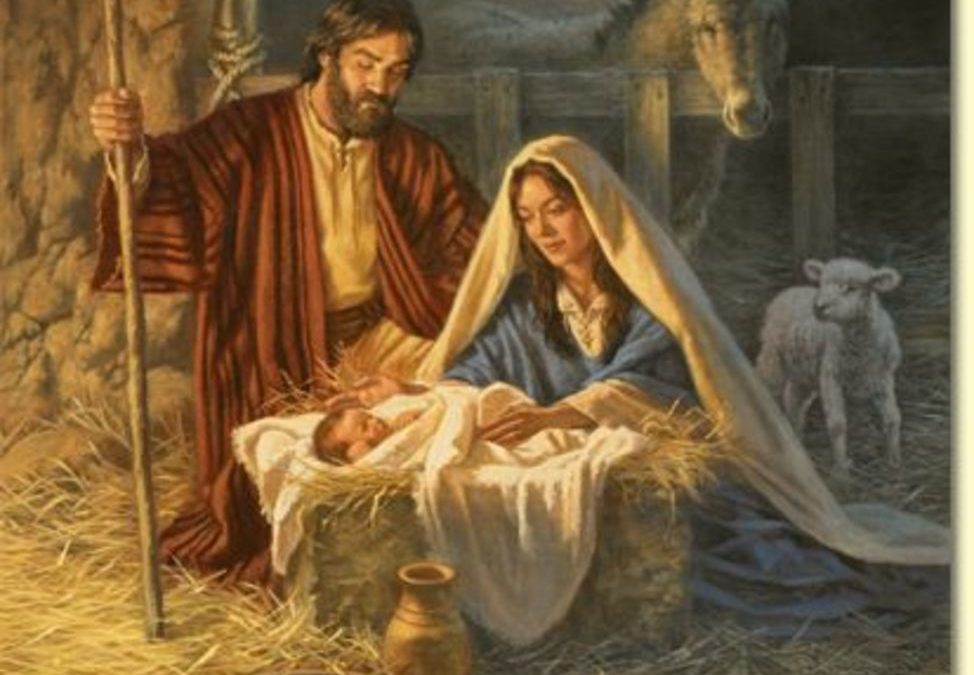Advent Season is a very special time of year that sometimes gets lost in the bright lights of Christmas. The first day of Advent is the first day of a new Liturgical (or church) calendar and begins a four week period of time before the nativity. The definition of the word advent; the arrival of a notable person, thing, or event. It is, to me, the anticipation of the most significant and notable being of all time, Jesus.
The Old Testament of the Bible presents God’s original way of interacting with his people, a covenant. It consists of a list of rules and expectations, the law or Torah.
The New Testament of the Bible introduces Jesus and a new way to interact with God. Jesus sets aside the old rules and asks people to believe in him, a new covenant.
Let’s go back to one of the first prophecies of a coming Messiah was mentioned in the Old Testament:
The Lord your God will raise up for you a prophet like me from among you, from your fellow Israelites. You must listen to him. For this is what you asked of the Lord your God at Horeb on the day of the assembly when you said, “Let us not hear the voice of the Lord our God nor see this great fire anymore, or we will die.” The Lord said to me: “What they say is good. I will raise up for them a prophet like you from among their fellow Israelites, and I will put my words in his mouth. He will tell them everything I command him. I myself will call to account anyone who does not listen to my words that the prophet speaks in my name. Deuteronomy 18:15-19
Though arguable, the first prophecy to the coming of the Messiah came from God in the Garden of Eden when he spoke to Satan after Satan tempted Eve: “I will put enmity between you and the woman, and between your offspring and hers; he will crush your head, and you will strike his heel” (Genesis 3:15).
After the first prophecies of Jesus coming, hundreds of years would pass and much anguish would cause darkness to fall. God was silent.
God did not speak—no Scripture was written. The 400 years of silence began with the warning that closed the Old Testament: “Behold, I am going to send you Elijah the prophet before the coming of the great and terrible day of the LORD. He will restore the hearts of the fathers to their children and the hearts of the children to their fathers, so that I will not come and smite the land with a curse” (Malachi 4:5-6).
The silence ended with the coming of John the Baptist, the Messiah’s forerunner.
Jews had returned to Israel from Babylonian captivity. They had given up their worship of idols. Nevertheless, Malachi’s warning was not without cause. The Jewish people were mistreating their wives, marrying pagans, not tithing, the priests were neglecting the temple and not teaching the people the ways of God. The Jews were not honoring God. Seems today is no different in many respects.
Between the time of Malachi and the coming of the Messiah, several prophecies were fulfilled. However, the people did not put to good use either the fulfilled prophecies nor the 400 years Israel was given to study Scripture, to seek God and prepare for the coming Messiah. Those years made blind and deaf, the nation to the point where most of the Jews could not even consider the concept of a humble Messiah.
Again, today not much different a scenario. I am guilty of getting carried away into the negativity of the day. Though I never have questioned the sovereignty of God, nor the promised coming of a savior, I can attest to the Jews’ tendency to be discouraged. I strayed from God a few times in my life and it caused some disillusioned thinking. So when the Jews hadn’t heard from God in hundreds of years, I am sure this caused much doubt to whether prophecy would be fulfilled in their lifetime.
The Advent Season is all about reflecting on how we can prepare our hearts and homes for Christ’s birth in the world as it is today. Advent is also a time for faith communities and families to remember, through prayer, reflections, and special music, the true meaning of Jesus’ birth. There are many different traditions associated with the four weeks of Advent.
Perhaps the most common in churches; celebrating with candles:
The first candle is purple, it symbolizes hope. It is sometimes called the “Prophecy Candle” in remembrance of the prophets, especially Isaiah, who foretold the birth of Christ. It represents the expectation felt in anticipation of the coming Messiah.
The second candle, also purple, represents faith. It is sometimes called the “Bethlehem Candle” as a reminder of Mary and Joseph’s journey to Bethlehem.
The third candle is pink and symbolizes joy. It is called the “Shepherd’s Candle”. It is pink because rose is a liturgical color for joy. The third Sunday of Advent is meant to remind us of the joy that the world experienced at the birth of Jesus,
On the fourth week of Advent, we light the final purple candle to mark the final week of prayer as we wait for the birth of our Savior. This final candle, the “Angel’s Candle,” symbolizes peace. It reminds us of their message: “Peace on Earth, Good Will Toward Men.”
Our church sometimes celebrates Advent with candles, as well as focused worship and messages telling of the coming of Jesus.
No matter the way you celebrate Advent, celebrate with great anticipation, hope, peace, joy and love. The God of heaven and earth loved you enough that He sent His one and only Son to save us all and bring His people the hope of Christ, the peace that passes all understanding, the joy of having saving grace through Christ, and the love of a savior, a love so big He bled and died for you.
Carol’s Joyful Noise

